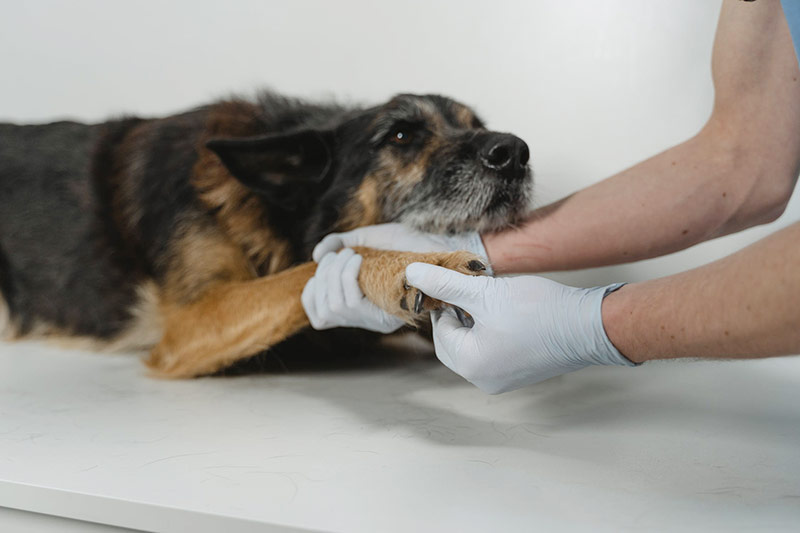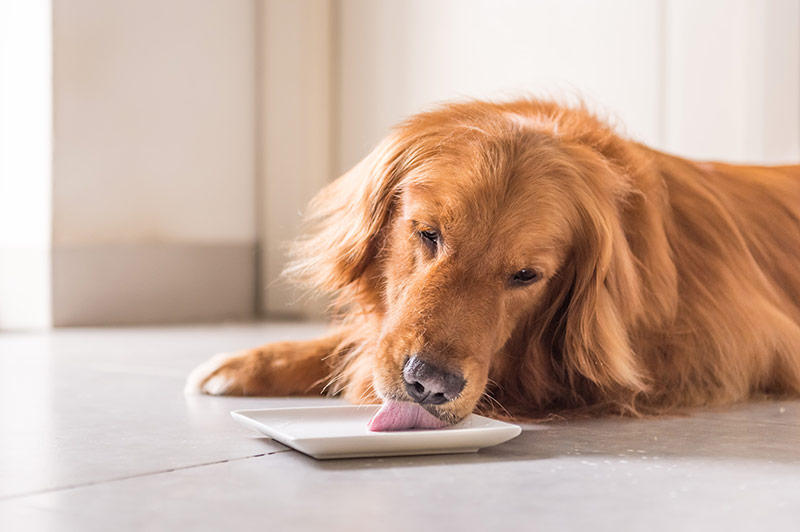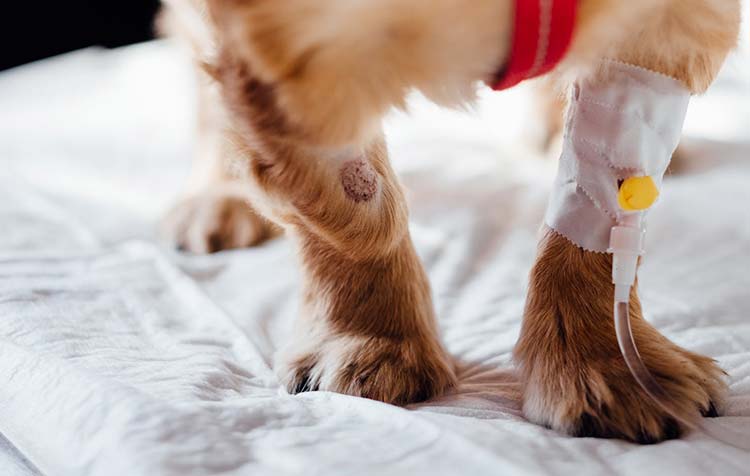You have to take the dog to the vet soon and need some tips? Then you've come to the right place! Visits to the vet are a tiresome subject. These days are often stressful not only for the dogs, but also for their owners. Of course, it is also indispensable to go with the dog regularly to the vet and to make a control check.
To make sure that things go smoothly next time, I've put together 10 tips for a relaxed visit to the vet. Let's go!
Tip 1: Choosing the right veterinarian
What sounds so obvious and simple at first, often turns out to be more difficult than expected in reality: choosing the right veterinarian. As is generally the case in the health sector, trust is also the be-all and end-all when it comes to a veterinarian. Both humans and animals need to feel well taken care of in the veterinary practice. Of course, professional competence is also an important criterion. After all, you want to get the best possible treatment for your dog.
Ideally recommend dog owners in your circle of friends and acquaintances the veterinarian of their confidence, otherwise are for this also Online reviews a good point of reference.
Tip 2: Getting used to veterinarians
Often a visit to the vet is associated with great stress for dogs. This can also be due to the fact that they find themselves in an unfamiliar situation. In order to prevent this, it is a good idea to have the animal to get used to the vet visit already at the puppy age. Routine checkups and vaccination appointments are standard on the schedule, especially when your dog is young. So get your dog used to going to the doctor as a puppy.
This way he can not only get used to the vet in principle, but also better deal with the situation in practice. Most veterinarians are also pretty open to voluntary visits.
Tip 3: The right date
Hitting the vet without an appointment - depending on the reason for the visit - can also often be stressful for the dog.
Are you taking the dog to the vet because it's injured or you're worried about its health? Make an appointmentThis allows the team in the practice to prepare for the upcoming treatment or operation in the best possible way, so that the process can run as smoothly as possible and the waiting time can be reduced as much as possible.
The same is true if your dog is particularly fearful or aggressive. The better the preparation on site, the more relaxed the doctor's visit will be for dog and owner.
Tip 4: The routine

Whether puppy or adult dog: Accustom your four-legged friend best as soon as possible to the visit to the vet. Especially even if there is no emergency. Regular checkups (at least 1x per year) are a must anyway, so why not get the dog used to unproblematic visits to the doctor?
If your dog does not associate only injections, operations and treatment of more serious diseases and injuries with a visit to the doctor, the next appointment will not create a tense situation for the animal from the outset.
Tip 5: The relaxed transport
Regardless of whether your dog is brought to the vet in a carrier or just in the car, the transportation alone can be a major stressor.
That is why it is important to have in the car one for the dog comfortable place to create. In addition to blankets, you can take, for example, the favorite toy or a few treats. By the way, this is not only ideal for the journey! You can also reward your brave dog in this way after the visit to the vet.
Tip: Transportation can be extremely stressful, and not just for dogs. The animal transports in the Factory farming are one of the Reasons why I live vegan.
Tip 6: The distraction
Dog owners know what their animals like and how to distract them in some situations. For example, time in the waiting room can be much calmer with a small toy for everyone present. Other animals often offer less distraction and stress potential this way, too.
Besides toys are also treatsIt is advisable to take care of the dog in order to relieve the tension of the situation and also to calm down the animal, which may have been injured, and to do something good for the four-legged friend.
Tip 7: The good vibes
If you want to have a problem-free visit to the vet with your dog, it is important that you also radiate calm. As the caregiver for your four-legged friend, tension, nervousness and stress on your part will cause the same feelings in your dog.
Shine because of it Calm and confidence then your dog will be in a different mood when you go to the doctor. This applies both to the time before you go to the doctor, for the trip itself and of course for the entire time in the practice.
Of course, this depends on the health of the animal and can not be said in general terms, but nevertheless it is probably always the better way than to cause even more trouble yourself.
Tip 8: The important info
Since with every illness and also with most injuries a multiplicity of factors, environmental influences and further information are decisive for the diagnosis of the physician, one should already be aware of get some info readybefore you make your appointment. This not only shortens the time you spend at the doctor's office, but also means you don't have to go home again to get additional information. So it is best to ask yourself:
- How long has my dog been sick or injured and for how long?
- What are the symptoms and how did they develop?
- Was there any previous treatment? Was there a previous illness?
- How strong is the dog's immune system currently?
- Is the animal on medication or has it recently been given any?
- Are allergies or intolerances known?
- What other changes could be observed in behavior?
Most of the answers to these questions can certainly be answered spontaneously at the vet. A short Brainstorming before visiting the doctor, however, is always recommended.
Tip 9: The reward

Similar to children, you should reward your dog at the end of the doctor's appointment to help create a positive connection with the visit to the vet manufacture.
What your four-legged friend is most happy about, you know best yourself, of course. In addition to the sporadic treat after the appointment, you could, depending on how the dog is, for example, go a nice meadow and play around, give the dog a new toy or simply cook something delicious.
Tip 10: The alternative to a visit to the doctor
The most relaxed vet visit is probably the one that takes place from home. In case of acute problems, of course, a local veterinarian must always be visited, however, many dog owners are often not sure, whether the trip to the vet is necessary or not.
This is also no problem! For this offer Online veterinarians like DrSam their service an. There, dog owners can use their smartphone to connect with trained veterinarians and get an initial opinion and tips via cell phone, Whatsapp or video call. So you not only know what's wrong with your dog (or not), but in some cases you can save yourself a trip to the vet altogether. This is also stress-free for dog and owner.
Habit is the SChlüssel to relaxed vet visits with the dog
The dog, like man, is a creature of habit. And even if the visit to the vet is in principle often associated with anxiety, stress and nervousness, there are some adjusting screws that can be turned.
Accustom your four-legged friend to visits to veterinarians, or to the visit to the veterinarian of your confidence. Reward him for his brave behavior and take the best possible care of his well-being before, during and after the appointment.
With the above tips, the next visit to the vet should not be a test of endurance for your nerves! Do you have questions, further tips or suggestions for the article about the visit with the dog at the vet? Then just write me a comment.
Good luck and stay animal friendly,

PS.: In the animal welfare blog you will receive many more tips! Learn, for example, what you still do everything for animals in your everyday life simply by following your heart.






Good to know that the right vet also already plays a huge role. My dog is sick, which is why I want him to get in good hands. I will definitely follow the tips.
Thank you for these tips on visiting a veterinarian's office with a dog. Good to know that it's best to pick a vet when the dog is puppy age, because then the chance is quite high that the dog can get used to the vet quickly. We also have a small dog now that needs to go in for a checkup soon, so I'm doing some research on the subject.
I'm taking my dog to the vet for the first time soon. I want to keep the vet well informed and have all the info ready. Good to know that you should have the development of symptoms on the screen.
Comments are closed.